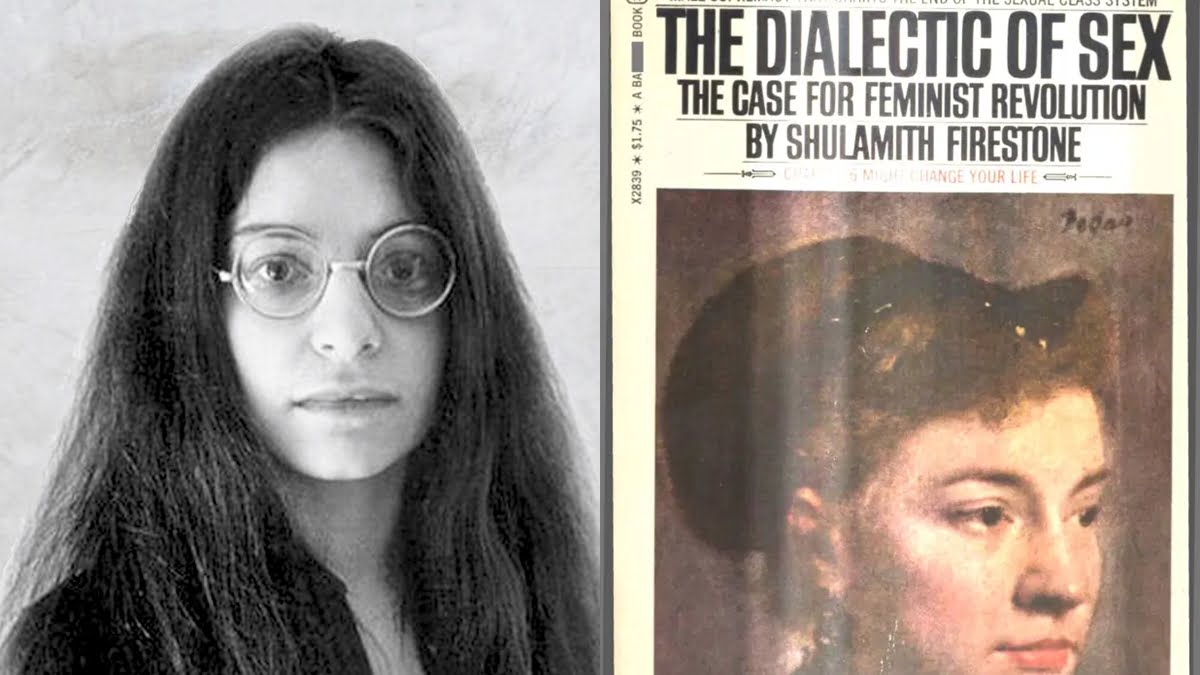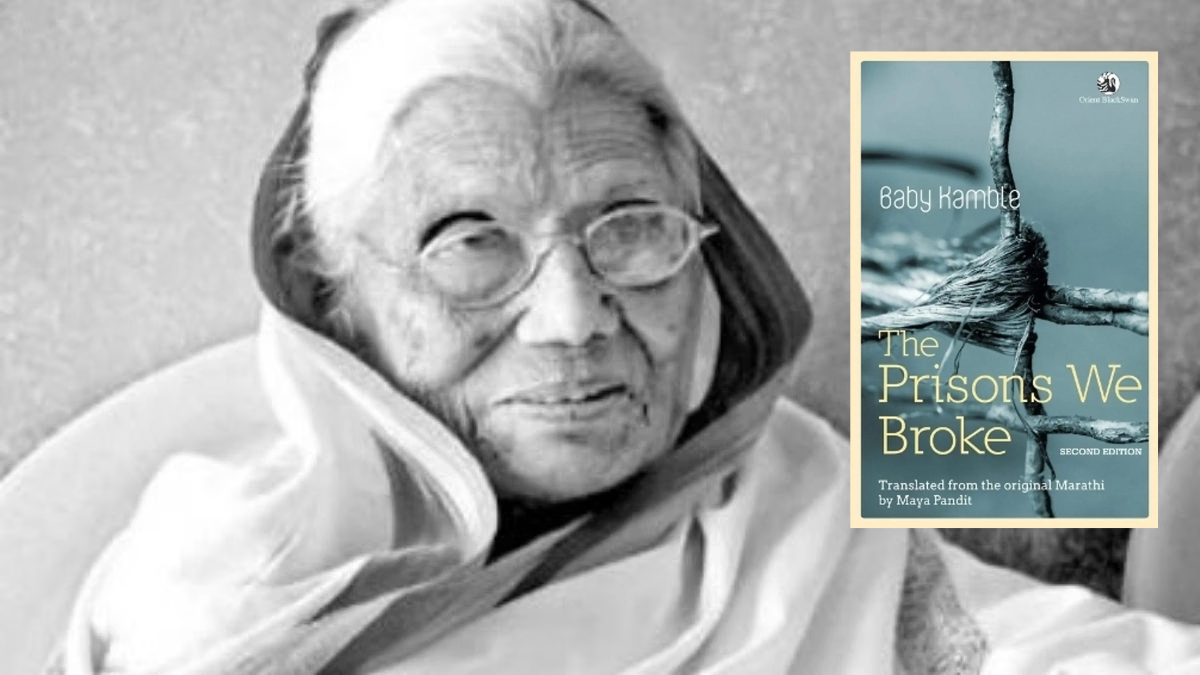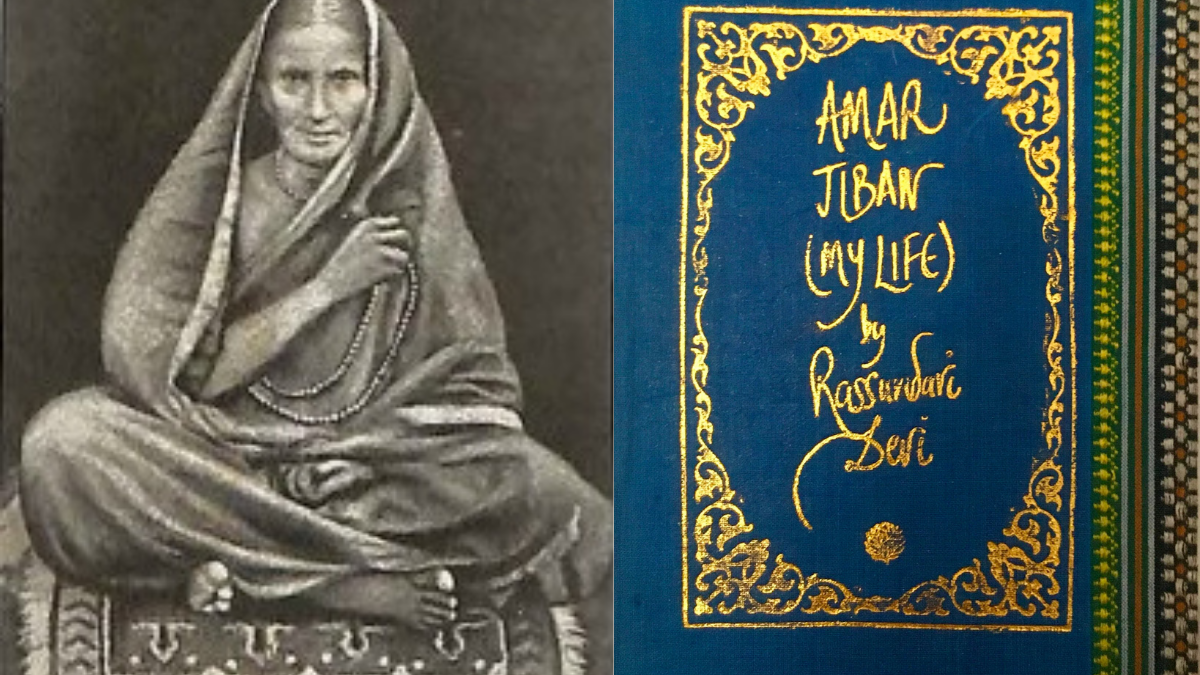“No one can understand how feminism has evolved without reading this radical, Inflammatory second-wave landmark.” – Dr. Naomi Wolf
As described by the Jewish Women Archives, Shulamith Firestone, known to be the founder of radical feminism, analysed women’s oppression through an intersectional lens of class, race and sex, and brought together the dialectical materialism of Marx along with the psychoanalytic insights of Sigmund Freud. Proposing that “family structure is the source of psychological, economic and political oppression” Shulamith Firestone’s The Dialectic of Sex, published in 1970, has emerged to be one of the most discussed and radical texts in the feminist scholar circles.
Proposing that “family structure is the source of psychological, economic and political oppression” Shulamith Firestone’s The Dialectic of Sex, published in 1970, has emerged to be one of the most discussed and radical texts in the feminist scholar circles.
While Shulamith Firestone wrote for a wider audience, the flummoxing perspective often appalled the readers. The beauty of her text, especially The Dialectic Of Sex which, as much as it was criticized, raged the charts at the time of the release. The Dialectic Of Sex was radical, audacious and brilliant. In our everyday lives when we are termed as feminazi for not laughing at sexist jokes, Shulamith Firestone advocated went one step ahead and advocated for seizing the means of reproduction and child-rearing. The Dialectic Of Sex claimed that women and men can be equal only when we eliminate the things that make women weak genetically.
Living in the current times where dissent is synonymous to being anti-national or a feminazi, it becomes imperative to revisit The Dialectic Of Sex only because of its sheer audacity and the numerous debates it generated. The ideas in The Dialectic Of Sex were agreeably flawed, wild and often rejected by the world but at the same time, created a space for dissent and disagreement. Shulamith Firestone, is an epitome of revolution, and her ideas especially in The Dialectic Of Sex created a stir that was almost unfathomable. Reading her works reminds the reader to be brave and not shy away from proposing what might seem as outrageous ideas without any fear of being shut down. For this reason, Shulamith Firestone’s The Dialectic Of Sex continues to be relevant today.
Also read: One Is Not Born A Woman: Remembering Monique Wittig’s Feminism
In the context of reproductive rights, The Dialectic Of Sex remains relevant even after half a century after it was published. What makes it pertinent even today is that women across the globe are still struggling with their reproductive rights and agency. As Polish women came down on the streets to rally for their reproductive rights, what The Dialectic Of Sex does is that it makes us realise how for many women across the globe, reproductive agency is still a distant dream and the denial of the same often results in them being exploited or violated. The Dialectic Of Sex continues to be relevant, because so far, the laws of only about 56 countries allow abortion and at least 29 countries absolutely do not allow abortions.
The figures have been taken from Centre of Reproductive Rights.
Shulamith Firestone: A Futurist Who Called Pregnancy ‘Barbaric’
Shulamith Firestone urged and advocated that women seize the means of childbirth and reproduction, and argued that if women seek emancipation, they must eliminate their role as the sole biological producers of children. Addressing the most important issues of the time, The Dialectic Of Sex addressed race, parenthood, family, love and sex. Instead of focusing on just law, rights and the political system, Shulamith Firestone aimed for the complete reconstruction of the society in The Dialectic Of Sex. Her envisioned feminist revolution proposed that women overturn the traditional notions of motherhood and dismantle reproductive expectations.
Shulamith Firestone believed, as Martha Ackelsberg writes, “Only a destruction of the nuclear family, and the consequent elimination of pressures on women and men to marry and have children, would make possible the creation of new, more rational, and voluntarily constituted groups of people committed to raising children in ways that would not require either permanent male-female bonding or the identification of two particular adults with “their” particular children”.
Shulamith Firestone challenges the nature of the biological family as well as joint families taking a dual stand on the position of women as a means of production and children as labor and calls for breaking up of joint families as they are a significant cause of female oppression.
The ideas that The Dialectic Of Sex proposes compel you to ponder on the proposed revolution for an egalitarian society. Shulamith Firestone must be applauded for her futuristic thoughts in terms of technology (though she was highly criticised) but one needs to keep in mind that when she proposed for this revolution, women were still relegated to an inferior status in society.
Also read: Intersectional Feminism 101: Why It’s Important And What We Must Remember
Though Shulamith Firestone should be appreciated for having an extremely futuristic and radical approach in terms of technology, can technology mend thoughts of centuries of patriarchal beliefs?
Rejecting the ideas of fertility, motherhood and family can be one of the ways of liberation from patriarchy but not the only or the ultimate one. Though all in the clutches of patriarchy, different women have different lived experiences and realities and eliminating fertility and motherhood cannot be the answer to all. When Shulamith Firestone suggests substituting motherhood with artificial birth she somewhere takes away the right to choice from a number of women who would want to reproduce and often also find it empowering.
Despite its obvious extremism, The Dialectic of Sex stands as a groundbreaking text with the power to jolt each one of us, compleling us to ponder and deeply reflect. With propositions as unflinching and radical as they were, this text is often overshadowed and deserves a wider reach among the thinkers of our generation.
Despite its obvious extremism, The Dialectic of Sex stands as a groundbreaking text with the power to jolt each one of us, compleling us to ponder and deeply reflect. With propositions as unflinching and radical as they were, this text is often overshadowed and deserves a wider reach among the thinkers of our generation. Just as The New York Times review, The Dialectic of Sex was both lauded and criticised, often in the same review. The Times called Shulamith Firestone both “brilliant” and “preposterous.”
Kate Millett, whose book “Sexual Politics” was published the same year as The Dialectic of Sex said, “I was taking on the obvious male chauvinists. Shulie (Shulamith) was taking on the whole ball of wax”.
About the author(s)
Prachi Sharma is a development practitioner deploying a feminist lens to every sphere of her work and life. With expertise in women’s sexual reproductive health and rights, Prachi has worked in various gender and women’s health projects in India and Africa. For her work with women and young adults, the Swedish Institute recently recognized her among 60 young gender leaders in South Asia and the MENA region. Currently working with the Piramal Foundation, she likes to laze, daydream, and consume all kinds of cinema and music.





What a well researched and articulate piece of writing. Congratulations Prachi! It is amazing how these ideas that Firestone propagated in 1970s are still tumultuous for our society.